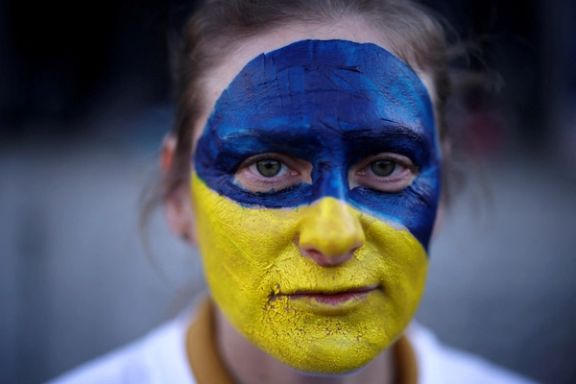Debate Over Ukraine Reflects Divisions Among Political Elite In Iran

As debate about Russia’s invasion of Ukraine continues in Iran, divisions reflect the political dispositions of various factions over Tehran’s foreign policy.

As debate about Russia’s invasion of Ukraine continues in Iran, divisions reflect the political dispositions of various factions over Tehran’s foreign policy.
Pro-Moscow positions are abundant in hardliner media outlets close to the core of the regime, such as Kayhan and Iran newspapers, while reformist daily Arman on Saturday and Sunday reflected anti-Russia views that normally do not find their way into the media.
Many ordinary Iranians and opponents of the Islamic Republic invariably support Ukraine and condemn the government pro-Russia policies on social media.
Other reformist media such as Sharq and Etemad newspapers carve out a position in between the two extremes. They often harshly criticize Moscow for its violation of international law, but invariably remind that the United States is no better when you look at its track record in places such as Afghanistan and the Middle east.
Reformists criticize President Ebrahim Raisi’s administration for tacitly blaming NATO and the United States for Russia’s actions, while also criticizing the US to remain politically correct given the regimes animosity toward Washington.
A good example of a reformist approach to the issue was reflected in an article in the Etemad daily by commentator Abbas Abdi who tried to strike a balance by blaming both Russia and the United States for the crisis in Ukraine. He said: "In the agreement about the nuclear disarmament of Ukraine and guaranteeing its territorial integrity in the 1990s, Russia undertook not to invade Ukraine and the agreement was also guaranteed by the United States. How responsible should a guarantor be?"
Abdi wrote in another part of the article: "Iranian hardliners say we should learn a lesson from this crisis in which the United States has not stood by its commitment [to Ukraine]. That is right. But don't Iran's hardliners want to take a lesson from Russia's behavior? Russia had guaranteed that no country would be allowed to invade Ukraine. I wish you take this lesson and rely on the people's support rather than relying on foreigners."
Abdi further wrote that Iran's position about Russia's invasion of Ukraine leaves the impression that it is not an independent state. He argued that Iran behaved in a way as if it had no other choice but to support Moscow. He hinted that Raisi’s supportive phone call to Vladimir Putin did not portray Iran as an independent country.
Abdi asked, "Why are we in such a position? We are in this position because of the same reason that Ukraine's president counted on the West in his confrontation with Russia. In the same way, Iran should not count on Russia or China in its confrontation with the West as they follow their own interests. And interests will push ethics and international commitments to the margins."
On the pro-Moscow front, Hossein Abbaszadeh Meshkini, the spokesman for the Iranian parliament's National Security and Foreign Relations Committee opined in an interview with Didban Iran that "Russia's attack on Ukraine was a deterrent measure to prevent an extensive war in Europe at the same scale as World War II."
Abbaszadeh further claimed that Moscow's “preventative” measure has been taken within the frameworks of the UN Charter. He claimed that the West's occupation of Afghanistan and Syria as well as everyday developments in the Middle East follow the same logic. He stressed that Russia is concerned about the expansion of NATO toward the Russian borders, adding that no independent country would tolerate NATO's presence at its borders.
He said Russia has been repeatedly sanctioned by the EU and the United States and it cannot tolerate NATO's presence at its borders. Abbaszadeh reiterated the regime’s position by saying that "We believe Russia and Ukraine can solve their problems through diplomacy which offers a less costly solution."